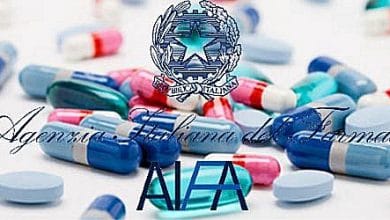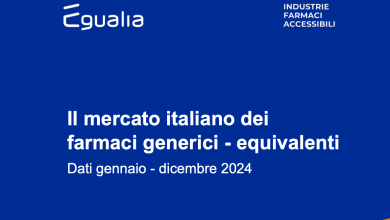
Bill: MASSIMO ENRICO BARONI and others: "Provisions on the transparency of relations between manufacturing companies, entities operating in the health sector and health organizations" (491)
Since May 2011, EFPIA's new code of conduct requires doctors to disclose their ties to pharmaceutical companies each time they publish an article and when they speak publicly about it, and establishes new transparency rules regarding fees paid to consultants, financial support to patient organizations, sponsorship fees for educational activities, tuition payments, room and board payments that subsidize participation in refresher courses, and fees paid to  supervisors of these courses.
supervisors of these courses.
Richard Bergstrom, director general of the European Federation of Pharmaceutical Industries and Associations (EFPIA), the European federation of pharmaceutical industries and associations, said that, while taking into account the differences that exist in the various states, a law on the transparency of the relationship between doctors and industry in Europe is "inevitable and desirable".
In Italy, 70 percent of doctors have made themselves available to publish data on supplies received from pharmaceutical companies. While taking into due consideration the availability of such a high percentage of professionals, it is advisable to evaluate the possible reasons for those who are unavailable.
The introduction of provisions similar to those of the US Sunshine Act would help health professionals improve their behavioral practices and better understand the effects of their relationships with industry. Many doctors think that these relationships are innocent, but medical research itself has shown that this is not the case, especially with regard to prescribing practices, demonstrating that even small gifts can influence the prescription of drugs.
Making all financial transactions and interest relationships public would have multiple positive effects for all actors: doctors would be more aware of the risks, thus making wiser decisions, while citizens could know the extent of the financial ties between certain pharmaceutical companies and health professionals and would thus be able to make more informed choices.
"Today our proposal for a transparent health law arrives in the Chamber of Deputies", said the Hon. Massimo Enrico Baroni, author of the PdL “An important step against corruption because it will be mandatory to publish all donations exceeding 50 euros made by the healthcare industry to doctors and administrative personnel. There will be no cost to the State and all patients will be more aware of their choices. We continue to work to guarantee all citizens the right to health!”
The PdL consists of 7 articles. We report the most significant.
Article 3.
(Communication of disbursements and direct and indirect interest relationships).
1. Agreements and disbursements in cash, goods, services or other benefits made by a manufacturing company in favor of:
to) of a subject operating in the health sector, when they have a unit value greater than 10 euros or a total annual value greater than 100 euros;
b) of a healthcare organization, when they have a unit value greater than 500 euros or a total annual value greater than 1,000 euros.
2. Direct or indirect relationships of interest consisting in participation, even free of charge or for honorary purposes, in conferences, training events, committees, commissions, advisory bodies or scientific committees or in the establishment of consultancy, teaching or research relationships are also subject to disclosure.
3. Publication of the disbursements and interest relationships referred to in paragraphs 1 and 2 of this article is carried out by the producing company by communicating the data relating to the disbursement or the relationship of interest, to be entered in the electronic public register set up pursuant to article 5. The communication referred to in this paragraph is transmitted in electronic format according to the methods established by the decree of the Minister of Health referred to in article 5, paragraph 7. If the producing company is based abroad, the fulfillment can be performed by the local representative defined pursuant to article 1, paragraph 1, letter t), of the legislative decree 24 April 2006, n. 219, and of article 1, paragraph 1, letter q), of the legislative decree 6 April 2006, n. 193.
4. The communication referred to in paragraph 3 indicates, for each disbursement or relationship of interest:
to) the following identification data of the beneficiary of the disbursement or of the counterparty in the relationship of interest:
1) the surname and first name, professional domicile and qualification, if the beneficiary is a natural person;
2) the company name, registered office and nature of the business, if the beneficiary is a legal person;
b) the tax code or value added tax (VAT) number of the beneficiary;
c) the date of the disbursement or the reference period of the relationship of interest;
d) the nature of the disbursement or of the relationship of interest;
And) the amount or value of the disbursement or the remuneration of the relationship of interest; in the case of goods, services or other utilities, the normal value determined pursuant to article 9, paragraph 3, of the consolidated income tax act, referred to in decree of the President of the Republic 22 December 1986, n. 917;
f) the cause of the disbursement or of the relationship of interest;
g) the subject, identified by means of the data referred to in the letters to) And b), who, as an intermediary, has defined the conditions of the disbursement or the terms of the relationship of interest or, in any case, maintained relations with the beneficiary or counterparty on behalf of the producing company, even if it is an employee of the same company;
h) the registration number of the beneficiary or counterparty to their professional order.
5. The communication envisaged by paragraph 3 is made, for disbursements made and interest relationships established in each quarter of the year, by the end of the following quarter. In the event of exceeding the annual value limits indicated in paragraph 1 during the year, the communication is made within the quarter following the one in which the exceeding occurred.
Article 4.
(Communication of shareholdings, bonds and proceeds deriving from industrial or intellectual property rights).
1. By 31 January of each year, manufacturing companies set up as companies shall notify the Ministry of Health of the identification data referred to in article 3, paragraph 4, letters to) And b), of subjects operating in the health sector and of health organizations for which one of the following conditions is met:
to) are holders of shares or quotas of the company's capital or of bonds issued by the same, registered for the previous year, respectively, in the shareholders' register or in the bonds book;
b) have received from the company, in the previous year, fees for the granting of licenses for the economic use of industrial or intellectual property rights.
2. The communication referred to in paragraph 1 indicates, for each holder:
to) for shares or capital quotas and for bonds listed on regulated markets, the value determined pursuant to article 9, paragraph 4, letter to) or b), of the consolidated text referred to in decree of the President of the Republic 22 December 1986, n. 917;
b) for bonds not listed on regulated markets, the total nominal value of the securities held, distinct for each issue, with an indication of the annual yield;
c) income from shares, capital quotas and bonds received by the holder during the year;
d) income from industrial or intellectual property rights received by the holder during the year.
3. In the communication referred to in paragraph 1 of this article, it is also indicated whether the total value of the shares or quotas constitutes a qualified holding defined pursuant to article 67, paragraph 1, letter c), of the consolidated text referred to in decree of the President of the Republic 22 December 1986, n. 917.
4. The communication referred to in paragraph 1 is transmitted in electronic format according to the methods established by the decree of the Minister of Health referred to in article 5, paragraph 7.
5. In the case envisaged by paragraph 3 of this article, the communication referred to in paragraph 1 is published by the Ministry of Health in a special section of the electronic public register established pursuant to article 5.
6. If the shares, quotas or bonds referred to in this article are attributed to the subject operating in the health sector by the manufacturing company free of charge or as consideration, even partial, for services rendered by the same, the obligation to communicate envisaged by article 3 remains unaffected. To this end, the value of the equity investment or bond is determined in accordance with the provisions of paragraph 2 of this article.
7. If the conditions envisaged in paragraph 1 occur in relation to the spouse, cohabitant or a relative up to the second degree of the person who works in the health sector, the latter is required to communicate the data envisaged in paragraphs 2 and 3.
Article 5.
(Telematic public register).
1. Within six months from the date of entry into force of this law is established site Internet institutional of the Ministry of Health the electronic public register called «Transparent Health». The start date of the registry is communicated by means of a notice published in the Official Gazette.
2. The communications referred to in article 3 and, in separate sections, the data resulting from the communications referred to in article 4, paragraph 5, and the acts of imposition of the sanctions referred to in article 6, paragraph 5, are published in the electronic public register.
3. The electronic public register is freely accessible for consultation and is equipped with functions that allow the search and extraction of the data envisaged by article 3, paragraph 4.
4. The communications published pursuant to this article can be consulted for five years from the date of publication. After this term they are canceled from the electronic public register.
5. Before the expiry of the term envisaged by paragraph 4, subjects operating in the health sector and health organizations may request the Ministry of Health to rectify or remove communications that refer to them. The request must be motivated exclusively in relation to errors in the published data or in the identification of the subject to whom they actually refer. The Ministry of Health, within thirty days from the date of receipt of the request, having heard the manufacturer concerned and carried out the necessary checks, provides for the rectification or removal or communicates the reasons for the rejection of the request.
6. In the event of rejection of the request or in any case after the term indicated in paragraph 5, third sentence, of this article has elapsed, the applicant may act pursuant to article 152 of the code regarding the protection of personal data, referred to in legislative decree 30 June 2003, n. 196. Notwithstanding the provisions of thearticle 10, paragraph 2, of the legislative decree 1° September 2011, no. 150, jurisdiction is attributed to the court of Rome.
7. Within three months from the date of entry into force of this law, with a decree of the Minister of Health, having consulted the Agency for Digital Italy, the National Anti-Corruption Authority and the Guarantor for the Protection of Personal Data, the structure and technical characteristics of the electronic public register are determined, as well as the requirements and methods for the transmission of communications and data entry, according to the following criteria:
to) ease of access;
b) ease of consultation;
c) comprehensibility of the data and homogeneity of their presentation;
d) provision of functions for simple and advanced search and for data extraction.
8. The decree referred to in paragraph 7 also establishes the models for the communications referred to in articles 3 and 4 and any additional elements to be indicated in the same communications.
9. The implementation of the provisions of this article must not result in new or greater burdens on the public finances. The administrations concerned provide for the relative fulfilments within the ambit of the human, instrumental and financial resources available under current legislation.
Article 6.
(Supervision and sanctions).
1. The manufacturing companies are responsible for the truthfulness of the data contained in the communications referred to in articles 3 and 4.
2. The manufacturing company that fails to carry out the electronic communication referred to in article 3, within the term set therein, is subject, for each omitted communication, to the administrative pecuniary sanction of payment of a sum of 1,000 euros increased by twenty times the amount of the disbursement to which the omission refers.
3. The manufacturing company that fails to transmit the communication referred to in article 4, paragraph 1, within the term indicated therein, or omits, if the conditions are met, the indication referred to in paragraph 3 of the same article is subject to the pecuniary administrative sanction of payment of a sum from 30,000 to 150,000 euros.
4. A pecuniary administrative sanction of payment of a sum from 20,000 to 200,000 euros is applied to the manufacturing company that provides false or incomplete information in the communications referred to in articles 3 and 4.
5. The acts of imposition of the sanctions envisaged by this article are published in a special section of the electronic public register referred to in article 5.
6. The Ministry of Health exercises the supervisory functions on the implementation of this law and applies the administrative sanctions provided for by this article.
7. The financial administration and the Guardia di Finanza, as part of the control activities carried out in relation to the manufacturing companies, verify the execution of the obligations established by this law. If they ascertain irregularities or omissions, unless the fact constitutes a crime, they shall inform the Ministry of Health for the purposes referred to in paragraph 6.
The TEXT as amended by the Parliamentary Commissions





